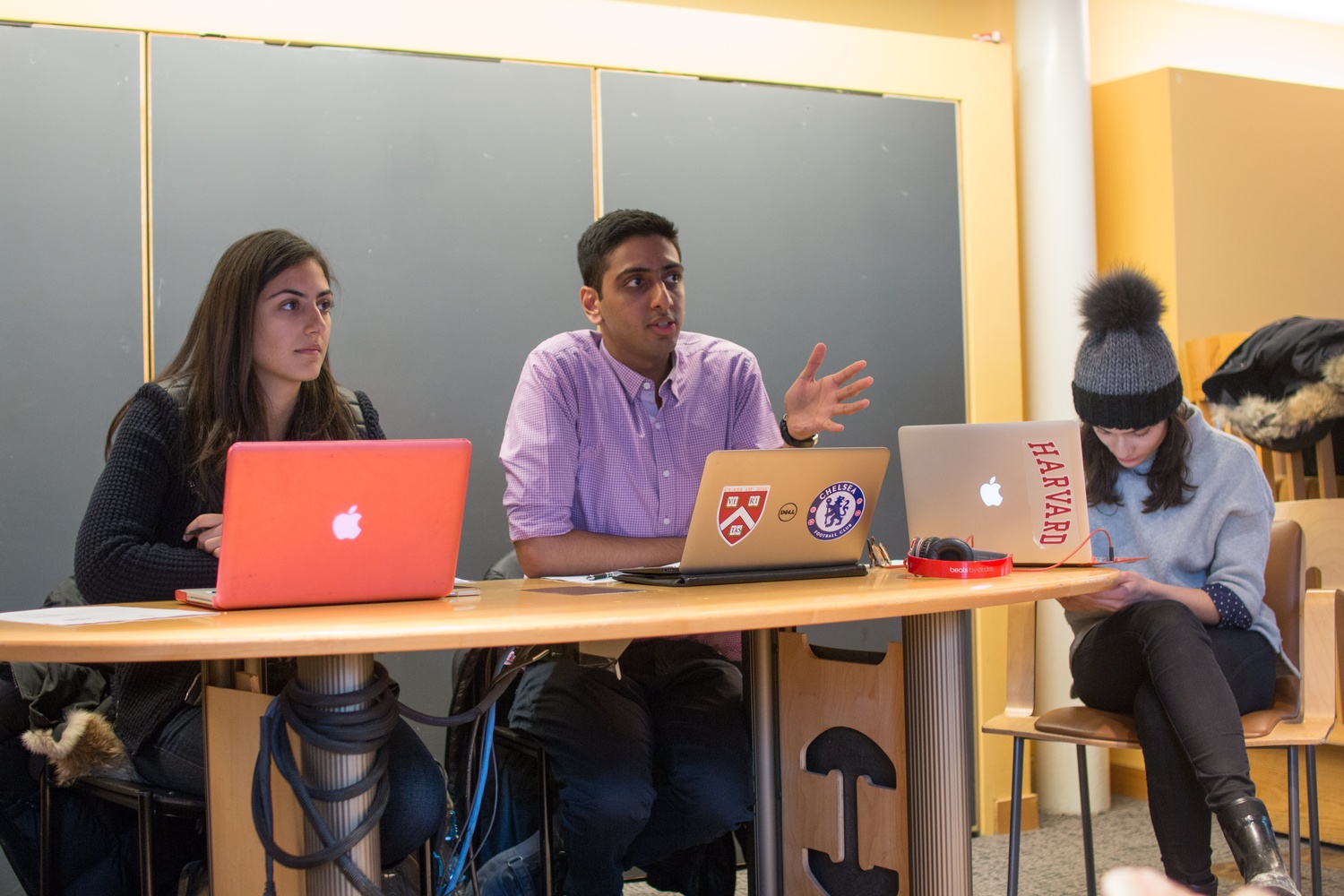
News
Summers Will Not Finish Semester of Teaching as Harvard Investigates Epstein Ties

News
Harvard College Students Report Favoring Divestment from Israel in HUA Survey

News
‘He Should Resign’: Harvard Undergrads Take Hard Line Against Summers Over Epstein Scandal

News
Harvard To Launch New Investigation Into Epstein’s Ties to Summers, Other University Affiliates

News
Harvard Students To Vote on Divestment From Israel in Inaugural HUA Election Survey
‘Tedious in Practice’: UC Questions Meeting Procedures

The Undergraduate Council holds general meetings every Sunday that are scheduled to last two hours. Much of that time is spent debating legislation through parliamentary procedure, which stipulates that the Council follow a series of steps before bringing a proposed act to a vote.
At the Council’s general meeting on Feb. 22, a handful of representatives quickly left the room after it took 20 minutes to pass a bill; the week prior, when the meeting was sparsely attended, UC President Ava Nasrollahzadeh ’16 urged one representative not to leave the room so the Council would not lose quorum for voting on legislation.
These events have not occurred in isolation. According to UC Rules Committee Chair Brett M. Biebelberg ’16, representatives often leave meetings before they are adjourned and spend meeting time on laptops completing schoolwork, suggesting that they are disengaged.
As a result, some members of the Council are questioning the effectiveness of following parliamentary procedure, which they say causes meetings to run too long.
“I’m for it in theory, but it’s tedious in practice,” Nasrollahzadeh said.
‘TEDIOUS IN PRACTICE’
The procedures call for a two-minute opening statement for all legislation, followed by questions, pro-con debate, and finally a vote on the legislation itself. In the case of amendments to legislation, the length of the process doubles because the same steps must occur for the amendment as well.
Currier House representative Stephen A. Turban ’17 ran his campaign for UC leadership alongside Cabot House representative Luke R. Heine ’17 last fall on the platform of abolishing the procedures. Now, as then, Turban said he believes parliamentary procedure should be done away with altogether.
“We exist as a student government, not a real government,” Turban said. “We’re a group of students that are very busy and have different time priorities.”
Council members point to some representatives’ lack of understanding of the procedures to explain why it slows down the process. At its most recent meeting on March 1, as well as meetings prior, the Council has spent a significant portion of time ironing out details of parliamentary procedure to discuss and pass legislation, rather than actually discussing it.
“I, for one, don’t think that parliamentary procedure should be as big of an obstacle as it is,” UC Treasurer Meghamsh Kanuparthy ’16 said.
According to Kanuparthy, representatives should take it upon themselves to learn elements of the procedures to shorten debates and keep conversation flowing.
“It’s honestly very surprising that people don’t realize what’s going on by now,” he added.
“If everyone were comfortable using parliamentary procedure, the meetings would go faster,” Biebelberg agreed.
‘ONE MEMBER, ONE VOTE’
Still, despite shared frustration, some representatives maintain that the procedures are necessary to protect minority voices within the Council. Nasrollahzadeh argued that the procedures are important to enforcing the Council’s “one member, one vote” policy, adding that Jacob R. Steinberg-Otter ’16, the UC’s parliamentarian, has been helpful so far in educating members in the procedures.
“We should structure the conversation so that the minority is guaranteed the right to speak, the right to make a point, the right to push a position that isn’t the most popular,” Kanuparthy said, even though he said he believes that the UC generally discusses material that is relatively non-controversial.
Not all representatives agree, though; Turban suggests the use of parliamentary procedure actually privileges the voices of few.
“You don’t want to give the power in the meetings to the few people who know parliamentary procedure,” he said. “It’s ironic.”
Beyond parliamentary procedure, representatives say that other factors elongate their meetings, including excessive talking and the nature of their meeting space.
“Our meeting space is problematic,” Biebelberg said. The Council currently meets in Ticknor Lounge in Boylston Hall, which Biebelberg said is dimly-lit and polluted with background noise. According to UC Vice President Dhruv P. Goyal ’16, the Council is considering moving its meetings to another location, such as Sever Hall or Harvard Hall.
At a more simple level, Kanuparthy said that the amount that members speak at meetings is also at the root of the problem.
“People talk for far, far too long,” Kanuparthy added. “It’s the nature of things that people like to hear themselves talk.”
—Staff writer Jalin P. Cunningham can be reached at jalincunningham@college.harvard.edu. Follow her on Twitter @JalinCunningham.
Want to keep up with breaking news? Subscribe to our email newsletter.
